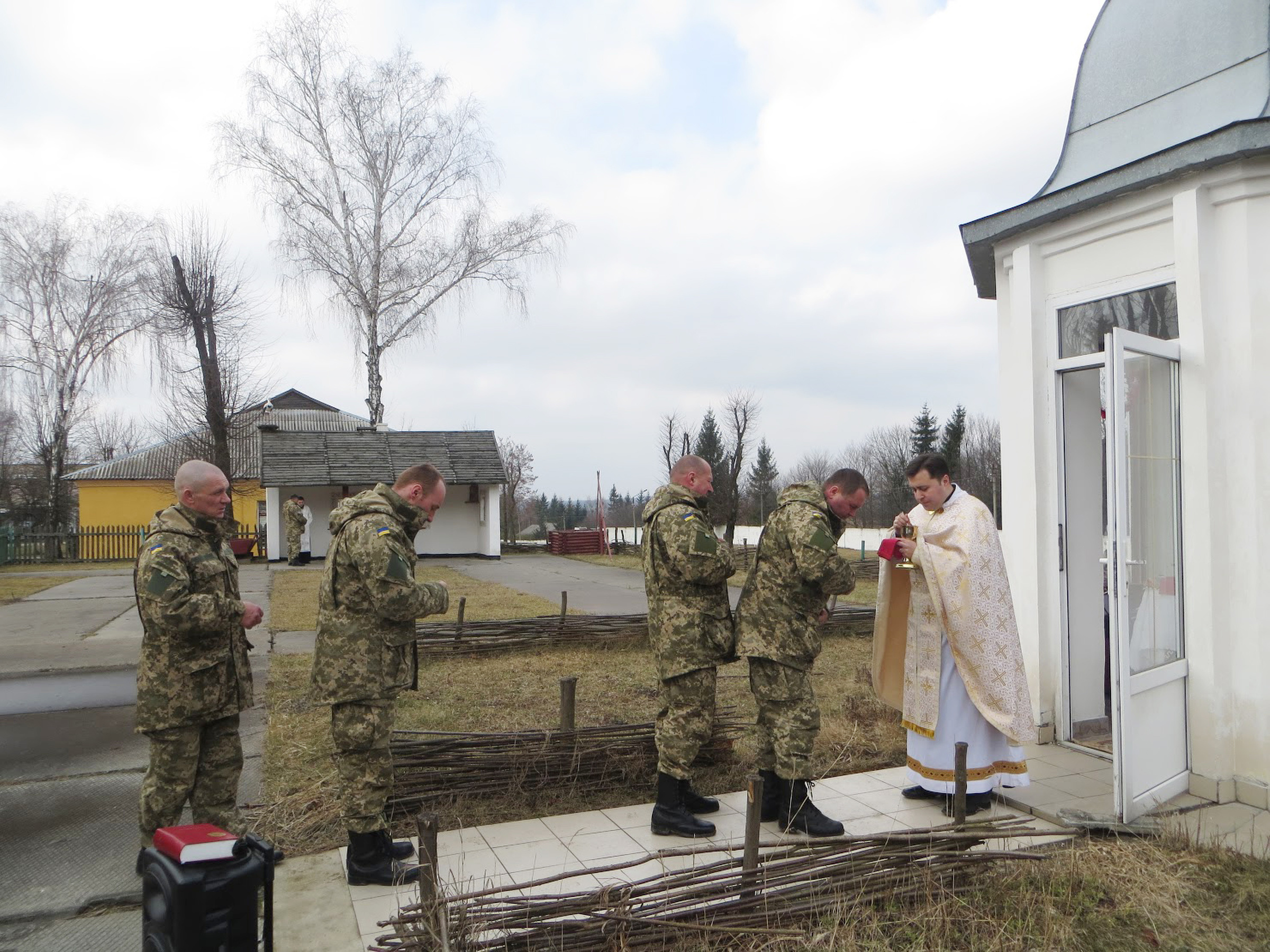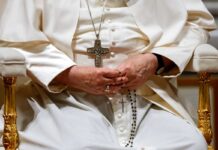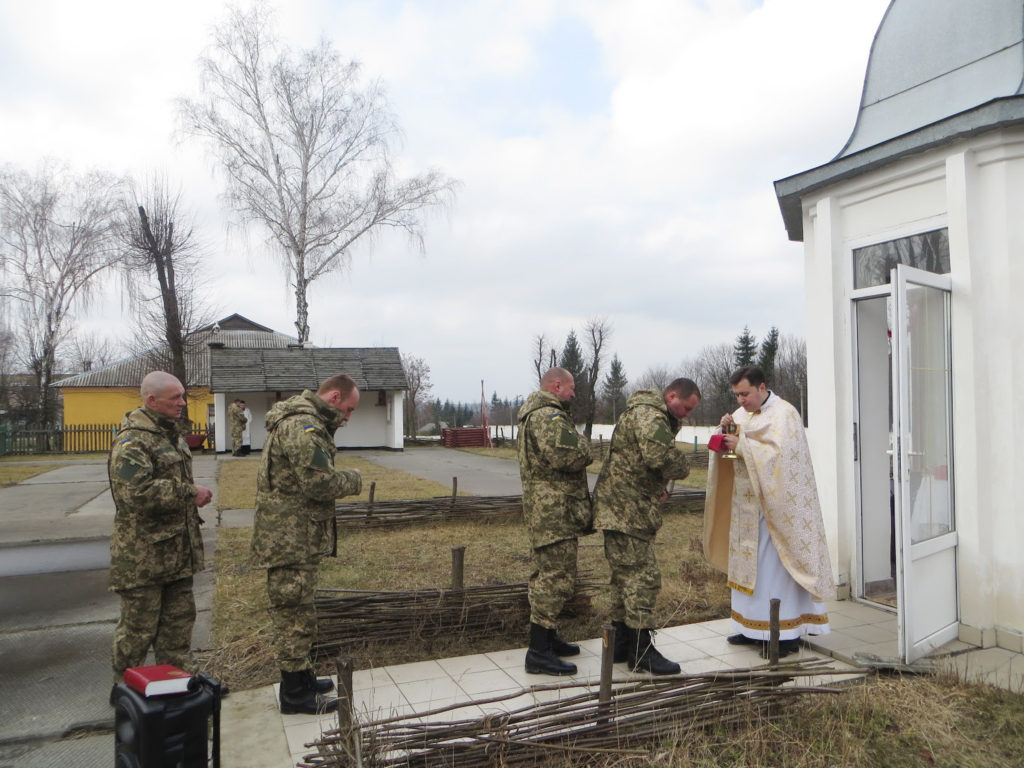
LVIV, Ukraine (CNS) — War is not easy to experience, but Jesuit Father Andrij Zelinskyj has found a calling to be on the front line.
As a military chaplain, Fr. Zelinskyj ministers to members of the Ukrainian army battling separatist rebels in eastern Ukraine’s Donbass region.
“War just reaffirmed me in my vocation,” the priest told Catholic News Service.
He has served as chaplain for 10 years, but it was not until last year when the Russia-backed rebels began an armed uprising that Fr. Zelinskyj experienced the challenges of war.
He is one of the most experienced chaplains among the hundreds of clergy of different denominations who have addressed the spiritual needs of Ukrainian servicemen since the beginning of the yearlong armed conflict in eastern Ukraine. They celebrate Mass and the Divine Liturgy, hear confessions, pray, offer a consoling ear to soldiers and administer the sacraments — even when shells explode all around.
Fr. Zelinskyj said he sees his role as being close to the soldiers, sharing their hardships and risks.
“This war is often called hybrid, but it is only true in the rear. At the forefront the war is real, for real is blood and death. Soldiers see a lot of pain and evil around them. I talk to them about values, about dignity, about their high calling to protect our motherland. I would like to bring heaven closer to them,” he said.
The yearlong war has become a catalyst for recognition of the important role of chaplains ministering to the Ukrainian armed forces. For years, their status was indefinite. The legal ground for military chaplaincy remains uncertain and legal provisions are not fully formed. The result: many priests visit war zone as volunteers and are not considered professional chaplains in the strict sense.
“When the conflict broke out, many priests were not prepared enough. But now they are well trained, for example know how to behave during shelling”, says Fr. Lubomyr Yavorskyj, coordinator of the Ukrainian Greek Catholic Chaplains.
The group includes nearly 100 priests, 74 of whom have visited the war zone in Donbass. Three have been wounded.
In late March, 14 Greek Catholic priests served in the war zone. All have received permission from their bishop and the military command to serve. As civilians, chaplains hold no military ranks.
Pallotine Father Viacheslav Hrynevych, a Roman Catholic priest, said he originally was focused on charity and planned to work with homeless people. Later, he felt called to become a chaplain. He told Catholic News Service that he has been on the front lines during the last year and was so close that he “has seen separatists with binoculars.”
Fr. Hrynevych is part of a mobile group that includes a psychologist and a psychiatrist. They visit various military divisions near Artemivsk, north of rebel-controlled Donetsk.
“I’m always deeply moved when I feel that the person truly trusts me and shares deep feelings or sincerely repents in confession,” Fr. Hrynevych said.
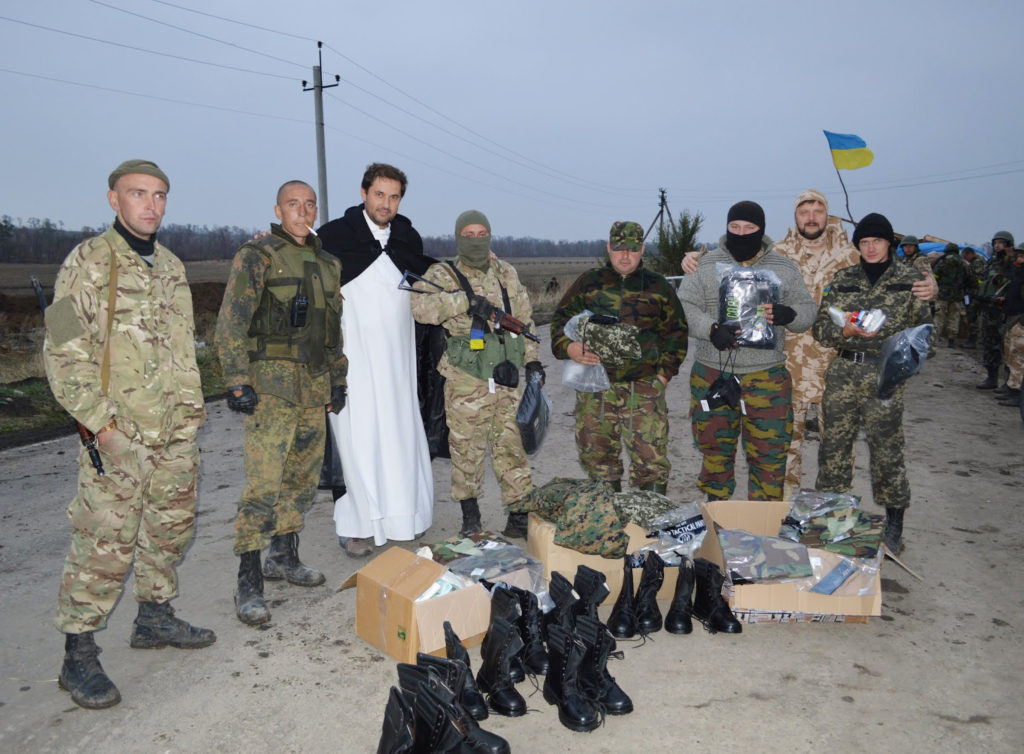
Fr. Leonard Aduszkiewicz is pastor of Our Lady of Czestochowa Parish in Mariupol, less than 30 miles from Russia. When the battle front neared the city, the checkpoints surrounding it became his extended parish. Fr. Aduszkiewicz regularly visits the checkpoints with volunteers and other clergy, bringing Bibles, rosaries and religious books as well as food, clothing and hygiene supplies.
The visits are examples of the ecumenism involved in the military chaplaincy as Roman Catholic, Greek Catholic and Orthodox priests join a Protestant deacon minister together.
“After arriving in Mariupol, I started establishing relations with Orthodox, Greek Catholic and Protestant communities,” Fr. Aduszkiewicz said. “Now these past initiatives bring incredible fruit. Soldiers perceive us differently when they see us together. They see not hostility but friendship and this helps them spiritually.”
In Lviv, hundreds of miles from the war zone, Sts. Peter and Paul Garrison Church, a Jesuit parish, became headquarters for chaplains and one of the main centers for volunteers who help the troops. A team of 13 priests, whose average age is 32, serves at the military bases and in a local military hospital, working with families who have lost someone at war.
The parish has also provides material support to soldiers. They collected more than $340,000 to buy uniform, boots, first-aid kits, hygiene kits and food. Fr. Taras Mykhalchuk, a priest at the church, said clergy appreciate the opportunity to work with the volunteers.
“I thank God that he entrusted us this field of ministry in these difficult circumstances,” Fr. Mykhalchuk said.
The priests acknowledged that working as a military chaplain offered a unique experience for their priesthood. They said the challenges they have faced reshaped their vocation.
“This vocation brings meaning in my life. I want to be useful, to participate in the defense of my country but as a priest,” Fr. Zelinskyj said.
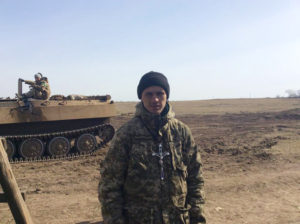
Despite the rewards, the work becomes especially difficult when a soldier who has become a friend dies, he said.
Even so, the priests know their ministries fill a deep need for the men who face death every day.
“I experience a special spiritual adventure, that’s my chance for meeting with God, a chance to rethink the power of prayer and God’s presence,” Fr. Hrynevych said. “I would say that being in the war zone for me is an accumulation of God’s grace.”
— By Mariana Karapinka, Catholic News Service.



